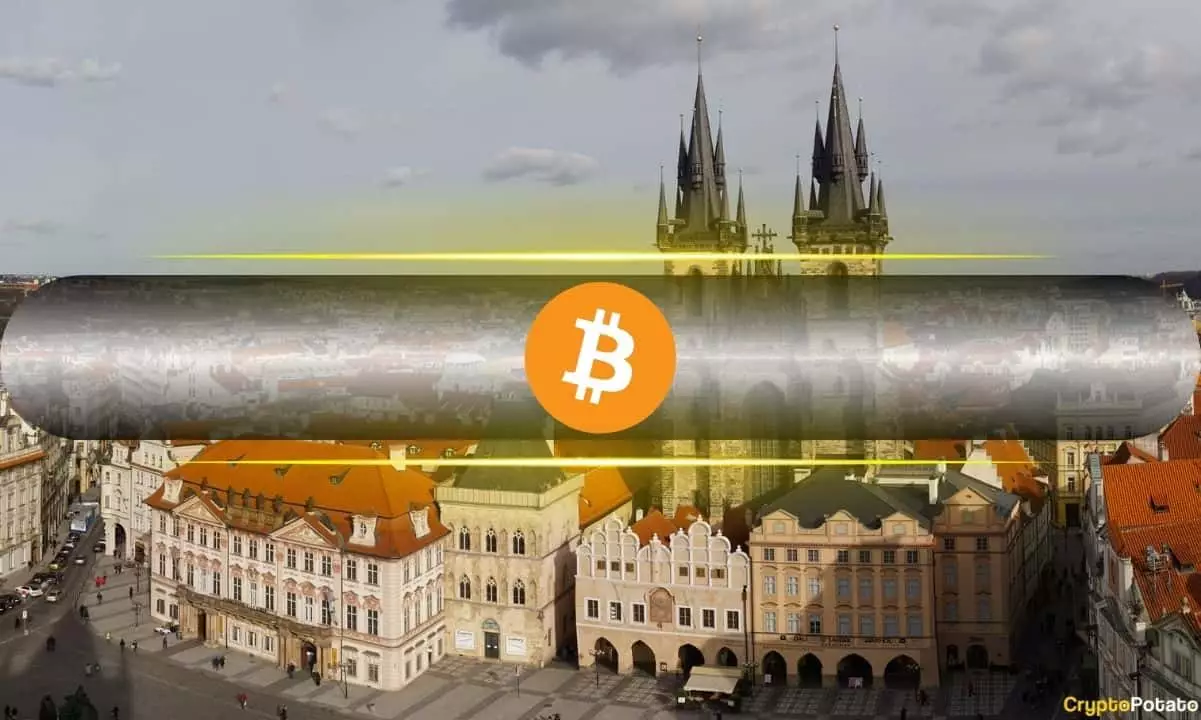In recent months, Bitcoin has transitioned from a niche digital currency to a serious competitor in the realm of traditional reserve assets. Governments and central banks worldwide are increasingly recognizing the potential benefits of including cryptocurrencies in their portfolios. Notably, the Czech Republic’s recent consideration of Bitcoin by its central bank, driven by Governor Aleš Michl, reflects a growing trend among nations exploring digital alternatives for enhancing financial security.
The Czech National Bank (ČNB) has taken a proactive stance, with Michl suggesting that acquiring a small amount of Bitcoin could serve as a diversification strategy for the country’s foreign exchange reserves. This cautious yet forward-thinking approach mirrors a global pivot toward cryptocurrencies, positioning Bitcoin as an innovative tool capable of safeguarding against economic uncertainties. However, Michl was careful to ensure that any potential acquisition remains modest, requiring approval from the ČNB’s board before proceeding.
The evolving sentiment towards Bitcoin has been particularly influenced by political developments in the United States. Following Donald Trump’s surprising electoral victory in November 2024, the narrative surrounding Bitcoin shifted dramatically. Once a skeptic, Trump has embraced the cryptocurrency as a strategic asset, proposing an initiative to establish a US Bitcoin reserve aimed at promoting economic stability.
This newfound support from prominent political figures has attracted attention, as proponents argue that Bitcoin’s finite supply positions it as a robust hedge against inflation and currency devaluation. Senator Cynthia Lummis is among the prominent voices advocating for the inclusion of Bitcoin within national reserves, despite facing criticisms from other Congressional members who remain wary of the implications.
As the discussion around Bitcoin intensifies, Switzerland’s exploration of the cryptocurrency as a reserve asset stands out. The Swiss National Bank is considering integrating Bitcoin alongside traditional assets like gold, reflecting the nation’s historical commitment to financial innovation. A potential referendum could position Switzerland as the first country to officially recognize Bitcoin as a reserve currency, marking a significant development in the realm of digital finance.
German politicians, including former Finance Minister Christian Lindner, argue for Bitcoin’s inclusion in the European Central Bank’s holding, citing potential benefits in reducing dependency on the US dollar. This sentiment extends to Hong Kong, where local legislator Wu Jiezhuang has endorsed integrating Bitcoin into financial reserves, advocating for enhanced economic resilience in an increasingly complex global landscape.
Russia, too, reflects this trend with more concrete actions aimed at embracing cryptocurrency as part of its financial strategy. In response to Western sanctions, Russian officials, such as State Duma deputy Anton Tkachev, have proposed the establishment of a strategic Bitcoin reserve. This move highlights how countries are actively seeking alternatives to traditional financial systems and exploring cryptocurrencies as a means to bolster economic autonomy.
The substantial interest in Bitcoin from various governments illustrates a pivotal shift in the understanding of assets in the modern economy. As nations navigate the dual challenges of economic stability and global trade complexities, the incorporation of Bitcoin into national reserves may well define the financial landscape of the future.

